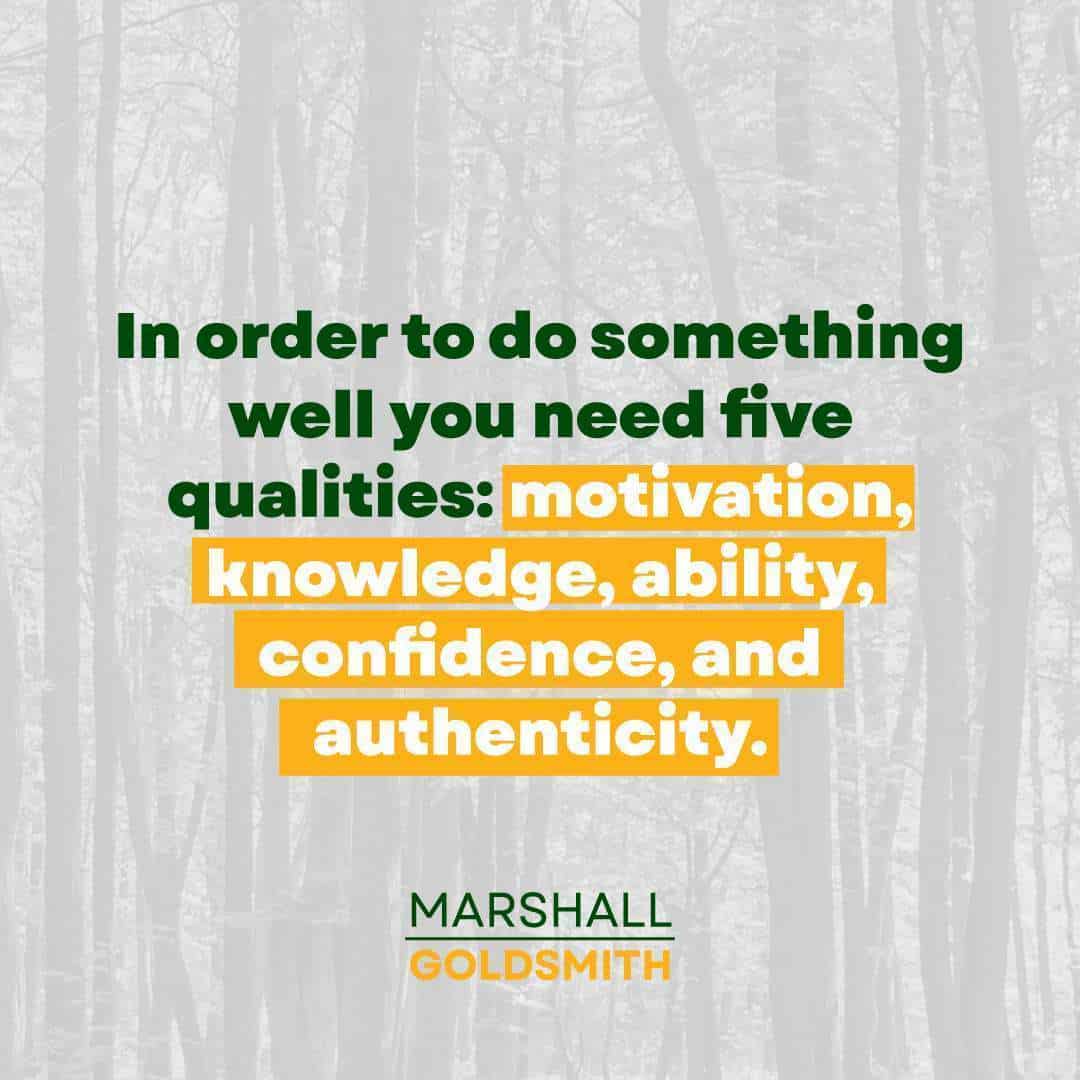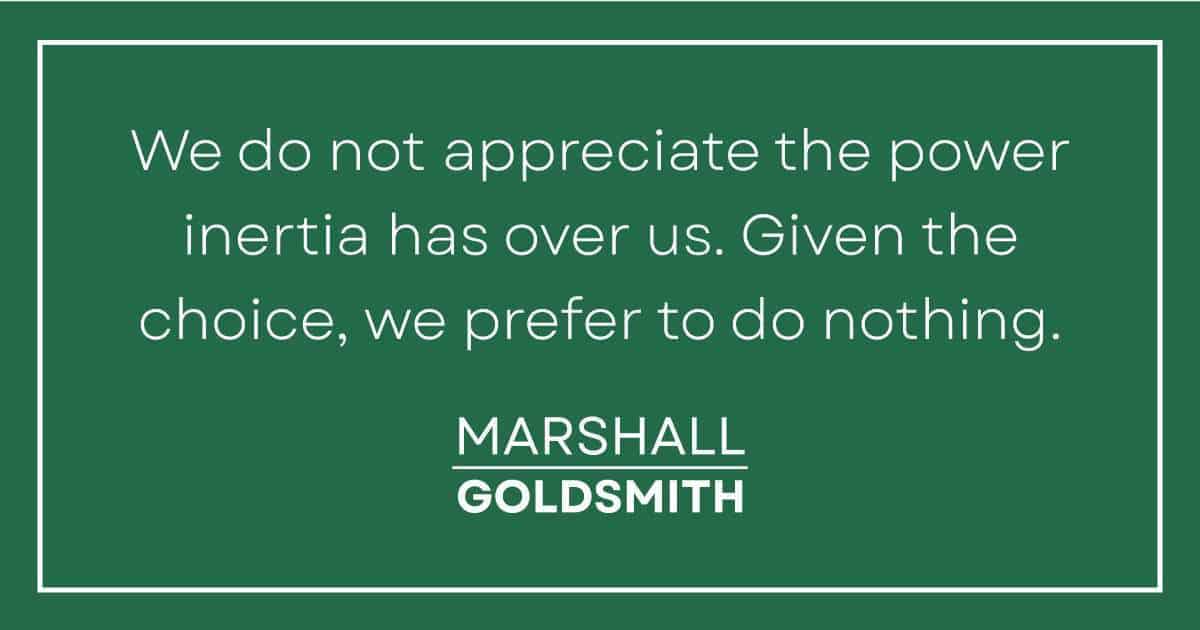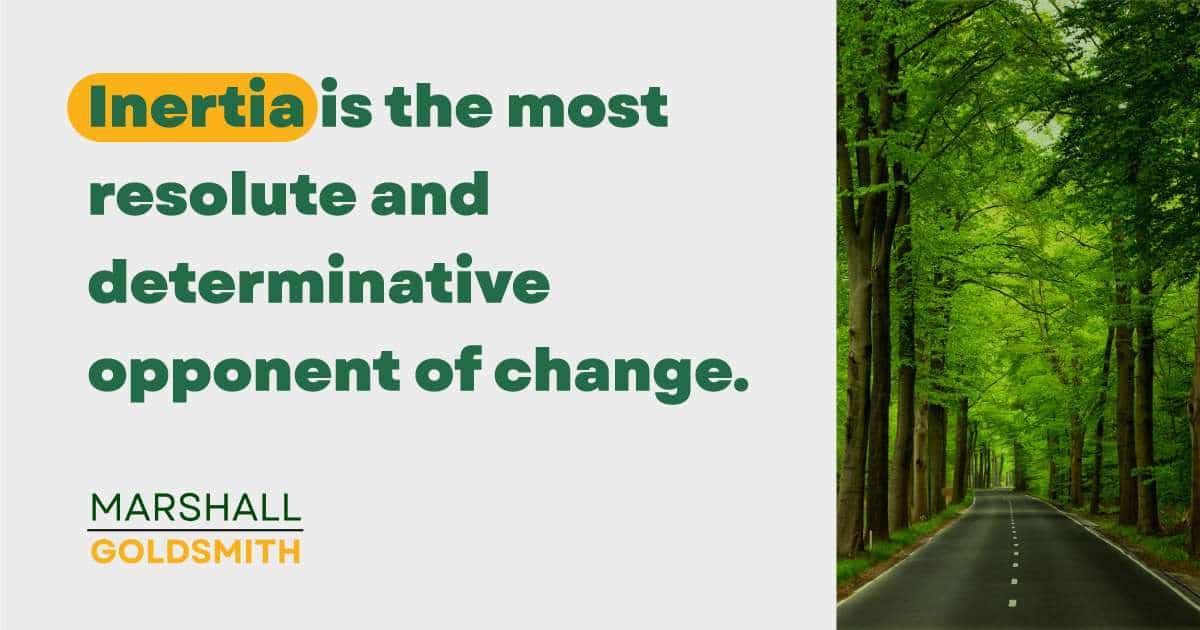Playing Favorites By Marshall Goldsmith There’s a reason I devote...
Dr. Srikumar Rao is a great guy and a wonderful teacher. His Creativity & Personal Mastery class is one of the most popular in both the Columbia and London business schools. It’s so meaningful it even has its own alumni association. Srikumar actually has students deal with the existential realities of their careers – questions like “Who am I?” “Why am I here?” and “Where am I going?” He’s training future leaders to be humans – not just technicians.
I spoke with him recently about his course. Edited excerpts of our conversation follow:
What do you do in this course that has such a great impact on your students?
Our course helps smart people – brilliant, driven people – find deep meaning. They are all successful in conventional terms or on their way to such success. They have the skills they need or know how to get them. What they often lack is an understanding of what is needed to live a profoundly fulfilling life. Our course helps them discover this for themselves.

Let’s dig deeper. Say someone takes your course. What, in your view, would be a “successful” outcome for that person?
That’s easy. I have a vision for each person who takes the course. I want him – or her – to passionately love what he [or she] does. Not love it because he makes a lot of money or gets recognition or becomes powerful. These are nice, but they’re byproducts. He loves it because it’s immensely fulfilling independent of the conventional trappings of success. It’s a calling – not a “job” or a “career.”
So, a successful outcome is when someone who participates in my program, one, understands and accepts this vision for herself, and two, determines that she will not settle for anything less.
The rest of life now becomes a journey to bring this about. There is no destination. The journey is all that there is, and it can be very, very joyful.
That sounds nice. It’s a powerful vision. But why is it so relevant now?
There’s no such thing as a 40-hour professional work week anymore. Twenty years ago – even 10 years ago – you could dislike what you did and still have enough time to be fulfilled outside of your job. Today, with e-mail and cell phones and Blackberries and PDAs, you’re never away from work. With the amount of time an average executive puts in now, if she doesn’t find fulfillment in her job, she’s living in New Age Corporate Hell. That isn’t a nice place to live.
O.K., I can understand why your program appeals to harried executives. But why should companies care if their people are “fulfilled”? You can’t measure it.
The same reason companies keep hiring you to coach their senior people! They become far more effective at what they do. Executives don’t burn out and leave when they feel deep satisfaction. They don’t create the human detritus that disgruntled managers do.
And society is better off as well?
You bet! Actually the link is much more direct. I have exercises that lead participants to discover for themselves that their deepest fulfillment comes when what they’re doing is of benefit to larger society in some way. This really knocks some for a loop – especially those schooled in the “take no prisoners” approach. But they don’t argue because, this isn’t something that I tell them. This is something that I let them discover on their own.
Why does your course have its own alumni association?
Many of our alumni feel that their lives have been changed completely. Practically everyone feels that they got something of great value. The alumni association is a great way for them to meet others who have been through a similar experience and to be “plugged into” a highly supportive community.
What advice would you give someone who hasn’t read your book and can’t take your course? Give me three things such a person can do to improve his or her life.
Fine. Here’s the first: We all define our reality and then proceed to experience it. But most of us don’t realize we’re doing it. We think that reality is given to us, as opposed to something we had a hand in creating. Once we understand this, we can define and live in a different reality that’s far better.
That’s too abstract. Explain it with an example.
You’re driving on a highway and get rudely – even dangerously – cut off by someone who weaves in and out. Your natural reaction is to give him the finger and stew in anger. See how this makes you feel.
Now imagine that the erratic driver is rushing to get to the hospital because he has received news that his son has been in an accident and is critically ill. See how the waves of sympathy gush out. You don’t know if he’s inconsiderate or responding to an emergency, but you do have the choice of living in one of those spaces. Why not pick one that leaves you feeling uplifted and compassionate rather than angry and frustrated?
O.K. What’s the next?
Think of an altercation you had with your boss or spouse or any person in your life with whom you have an ongoing relationship. What were you thinking about this person in the 24- to 48-hour period immediately preceding the argument? Odds are pretty good that you were thinking quite negatively. It’s unlikely that you were a completely innocent, aggrieved party. You had a hidden hand in creating that unpleasantness.

You’re right! My wife, Lyda, is one of the nicest people in the world. I occasionally even get crabby with her. When this happens, my attitude is usually the major problem in our communication.
If you have an ongoing relationship with a person, think of everything positive about that person that you possibly can and enter your interaction from that space. Ignore all the crap that used to drive you up the wall before. You will be amazed at what a change this attitude shift brings about. Many persons in my program have turned dysfunctional relationships around as a result of this one technique.
Great! And your final tip?
Be grateful all the time. Be grateful for everything. Do you have a toxic person in your life? Be grateful to him or her.
You mean persons should be grateful to a toxic boss?
Absolutely! I get immense pushback when I advocate this. Persons don’t want to feel grateful to their toxic boss. They want to get an effigy and stick pins in it. They gradually come around when I explain that they’re practicing gratitude for themselves, not for their boss.
How so?
I ask them to think negatively about their boss and note the anger, frustration, feelings of helplessness and bitterness that emerge. Is this the room they want to live in? I then ask them to be grateful for having that person in their life. He’s a challenge that trains them to deal with difficult persons and move to higher management positions. When the focus is on learning and dealing with the situation, much of the toxicity simply drains away.
It’s wonderful to be grateful. To have that gratitude well out from deep within you and pour out in waves. Once you truly experience this, you will never want to give it up.
Is there any way that someone who is not affiliated with Columbia or London Business School can participate in your program or learn more about your teachings?
Please ask your readers to visit my website at www.theraoinstitute.com.
Is it O.K. for our BusinessWeek.com readers to e-mail you?
They can email me at srikumar.rao@theraoinstitute.com.

Adding Too Much Value Won’t Get You There By Marshall...
C-Suite Master Class: No, But, However By Marshall Goldsmith Continuing...
The Doerr Institute: Expanding the Market for Coaches By Marshall...
Making Leadership Development Part of the College Degree at Rice...
Sanyin Siang – Winner of the Thinkers50 Marshall Goldsmith Coaching...
Thinkers50 Marshall Goldsmith Distinguished Achievement Award in Coaching – Nominees...
Leading with Influence: What Is Influence360°? By Marshall Goldsmith Founder...
Are You a Dominator, Manipulator, Persuader or Influencer? By Marshall...
Leading with Influence: Redefining Modern Influence Part 2 By Marshall...
My mission is simple. I want to help successful people achieve positive, lasting change and behavior; for themselves, their people, and their teams. I want to help you make your life a little better. With four decades of experience helping top CEOs and executives overcome limiting beliefs and behaviors to achieve greater success, I don’t do this for fame and accolades. I do this because I love helping people!
As an executive educator and coach, I help people understand how our beliefs and the environments we operate in can trigger negative behaviors. Through simple and practical advice, I help people achieve and sustain positive behavioral change.